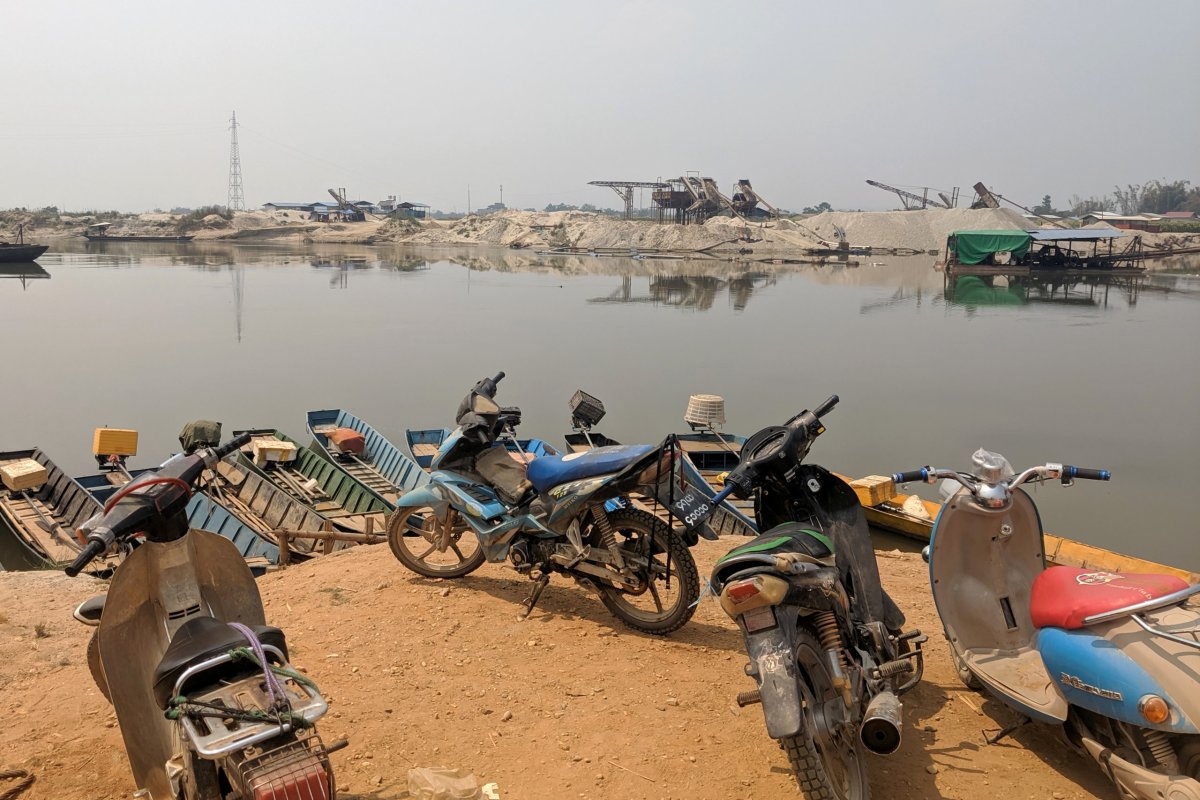BEIJING/SINGAPORE (Reuters) – Regions along China’s porous borders with southeast Asia are working hard to improve surveillance and curb illegal immigration, authorities said, as thousands flood into a country seen as a safe haven in the global war against the coronavirus pandemic.
As the number of confirmed cases across the globe exceeds one million, China says its lockdowns of Wuhan and the province of Hubei, where the disease originated late last year, have brought domestic sources of transmission under control. Authorities have now turned their attention to potential infections from overseas.
But while they have imposed tough new quarantine measures on all passengers flying into China’s airports, they are struggling to handle an influx of people crossing the poorly policed frontiers of Laos, Myanmar and Vietnam.
Premier Li Keqiang’s special government taskforce handling the COVID-19 outbreak decided on Thursday to strengthen border controls and impose centralised quarantine on travellers who enter the country via highways.
“China’s southwest land border with South East Asian countries is too long and porous to be enforced properly,” said Zhang Mingliang, professor of South East Asia studies at Guangzhou Jinan University.
These borders have often proved vulnerable to drug smugglers and human traffickers, and now local governments are facing the additional challenge of having to cope with thousands of people fleeing the coronavirus.
“Before the outbreak, Vietnamese people have scaled barbed wire fences to cross into Guangxi for work,” Zhang added, adding that it wouldn’t be a surprise if more people were now entering the country, either because of the virus or for other purposes.
Last month, 13 foreign citizens were reported to have illegally entered the city of Baise in the region of Guangxi, which shares a border with Vietnam. They were immediately repatriated, and authorities have now set up volunteer checkpoints to try to stop further illegal entry.
NO SIGNS OF STRICTER CHECKS
Although China has promised tougher controls, residents on the Myanmar side of the border said workers and businessmen continue to make routine journeys into the neighbouring Chinese province of Yunnan.
“People cross to China every day,” a resident of Namkham township, in Myanmar’s northern Shan state, separated from China by the narrow Shweli river, told Reuters. “Almost all of them are Myanmar nationals who are manual labourers on banana plantations, maize plantations and other plantations.”
A Reuters reporter saw no signs of tight surveillance on either side of the river at two crossing points.
However, many people now entering China are Chinese nationals doing so legally, with tougher border and airport controls spooking thousands of Chinese farmers, traders and construction workers into returning home.
Local authorities have promised to strictly apply quarantine rules on those who enter.
Yunnan province, which shares a rugged and sometimes lawless 4,000-km border with Myanmar, Laos and Vietnam, has become the “front line” of efforts to prevent infections entering the country from overseas, senior provincial officials said at a meeting on March 31.
In Mengla, a county in Yunnan on the border with Myanmar, traffic flows have surged since March 28 as people return to China by road following the cancellation of flights as well as toughened airport controls, residents said.
Authorities have commandeered 46 hotels to quarantine incoming travellers, with as many as 3,589 incoming travellers isolated in the county by March 28.
Xishuangbanna prefecture, which runs Mengla and forms a large part of China’s border with Myanmar, has also set up a special task force to build a “defensive line” preventing illegal border entry, especially for citizens from Myanmar and Laos, it said in a notice on Thursday.
“To be honest we were not that panicked during the domestic outbreak given our remote location,” said a Xishuangbanna resident. “But now we are frightened as we suddenly stand on the front line of the battlefield.”
(Reporting by Yew Lun Tian and Keith Zhai; Additional reporting by Lusha Zhang; writing by Poppy McPherson and David Stanway; Editing by Raju Gopalakrishnan)





















